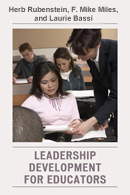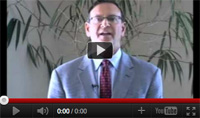CHAPTER FIVE:
Leadership Theory and Practice
Leadership Theory…
Leadership is what teachers and most of the people in education do day in and day out. They lead students. Knowing the ten generally accepted theories of leadership, and the theories regarding motivation and many of the brands of leadership can be helpful as teachers seek to become better leaders. This chapter provides an overview of leadership theory and practice and is designed to be a reference guide for the reader. In Appendix B to this book, we have provided a description of approximately 90 brands of leadership currently found in the leadership literature today.
Ten Leadership Theories…
Each of these theories is relevant to teachers who intend to become better leaders. This review of leadership theory shows that there are many parts to leadership. It also shows that learning leadership theory and applying it in the daily practice of teaching is something that each and every teacher can do. These theories of leadership can be easily learned and applied. They are both practical and serve as a general guide regarding how teachers can think about understanding leadership more fully. Below, we identify ten leadership principles that serve as a guide to teachers.
Ten Leadership Principles…
There are ten key leadership principles are relevant to helping teachers become better leaders in the classroom, in the school, in their lives and in the eyes of their students…
Leaders fail very often, but they pick themselves up and try again. Leaders should always challenge other leaders that seek to create fear in any organization, especially schools. Leaders should also seek to help people get over their insecurities by giving them assignments where they feel confident enough to take risks, where they know they can pick themselves up after a mistake or failure, and where they can build confidence over time.
These theories and principles of leadership are guideposts to teachers who want to become better leaders. For some, thinking of leadership as a means to solving problems, is also a good approach to finding ways to become a better leader. One basic notion of leadership defines it as ‘problem solving.’ Leaders are people who solve problems and often people who see problems and understand them first.
Motivation is a critical component of leadership. Teachers are called upon every day to motivate students, assistants, school administrators, and most importantly, themselves. Burnout is a function of a decrease of motivation, more than it is a function of being worn out due to excessive work. Avoiding burnout is essential for teachers and this chapter has included information and theories that are designed to guide teachers for the long run who want to be better leaders.
LISTEN TO OUR MOST RECENT WEBINAR
* The concept is incredibly important. I believe that building leadership capacity at all levels of school districts is essential if we are to solve our problems of practice and focus on continuous improvement...[read more]
Cindy Stevenson Superintendent, Jefferson County Schools, Golden CO


